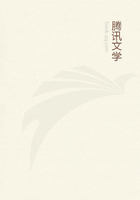"Do I expect this doctrine to meet with any considerable acceptance?" I wish I could say, yes; but unhappily various reasons oblige me to conclude that only here and there a solitary citizen may have his political creed modified. Of these reasons there is one from which all the others originate.
This essential reason is that the restriction of governmental power within the limits assigned, is appropriate to the industrial type of society only; and, while wholly incongruous with the militant type of society, is partially incongruous with that semi-militant semi-industrial type, which now characterizes advanced nations. At every stage of social evolution there must exist substantial agreement between practices and beliefs -- real beliefs I mean, not nominal ones. Life can be carried on only by the harmonizing of thoughts and acts. Either the conduct required by circumstances must modify the beliefs to fit it; or else the changed beliefs must eventually modify the conduct.
Hence if the maintenance of social life under one set of conditions, necessitates extreme subordination to a ruler and entire faith in him, there will be established a theory that the subordination and the faith are proper -- nay imperative.
Conversely if, under other conditions, great subjection of citizens to government is no longer needful for preservation of the national life -- if, contrariwise, the national life becomes larger in amount and higher in quality as fast as citizens gain increased freedom of action; there comes a progressive modification of their political theory, having the result of diminishing their faith in governmental action, increasing their tendency to question governmental authority, and leading them in more numerous cases to resist governmental power: involving, eventually, an established doctrine of limitation.
Thus it is not to be expected that current opinion respecting governmental authority, can at present be modified to any great extent. But let us look at the necessities of the case more closely.
Manifestly the success of an army depends very much on the faith of the soldiers in their general: disbelief in his ability will go far towards paralysing them in battle; while absolute confidence in him will make them fulfil their respective parts with courage and energy. If, as in the normally-developed militant type of society, the ruler in peace and the leader in war are one and the same, this confidence in him extends from military action to civil action; and the society, in large measure identical with the army, willingly accepts his judgments as law-giver. Even where the civil head, ceasing to be the military head, does his generalship by deputy, there still clings to him the traditional faith.
Similarly with the willingness to obey. Other things equal an army of insubordinate soldiers fails before an army of subordinate soldiers. Those whose obedience to their leader is perfect and prompt, are obviously more likely to succeed in battle than are those who disregard the commands issued to them.
And as with the army so with the society as a whole; success in war must largely depend on that conformity to the ruler's will which brings men and money when wanted, and adjusts all conduct to his needs.
Thus by survival of the fittest, the militant type of society becomes characterized by profound faith in the governing power, joined with a loyalty causing submission to it in all matters whatever. And there must tend to be established among those who speculate about political affairs in a militant society, a theory giving form to the needful ideas and feelings; accompanied by assertions that the law-giver if not divine in nature is divinely directed, and that unlimited obedience to him is divinely ordered. Change in the ideas and feelings which thus become characteristic of the militant form of organization, can take place only where circumstances favour development of the industrial form of organization. Being carried on by voluntary co-operation instead of by compulsory co-operation, industrial life as we now know it, habituates men to independent activities, leads them to enforce their own claims while respecting the claims of others, strengthens the consciousness of personal rights, and prompts them to resist excesses of governmental control. But since the circumstances which render war less frequent arise but slowly, and since the modifications of nature caused by the transition from a life predominantly militant to a life predominantly industrial can therefore go on only little by little, it happens that the old sentiments and ideas give place to new ones, by small degrees only. And there are several reasons why the transition not only is, but ought to be, gradual. Here are some of them.
In the primitive man and in man but little civilized, there does not exist the nature required for extensive voluntary co-operations. Efforts willingly united with those of others for a common advantage, imply, if the undertaking is large, a perseverance he does not possess. Moreover, where the benefits to be achieved are distant and unfamiliar, as are many for which men now-a-days combine, there needs a strength of constructive imagination not to be found in the minds of the uncivilized. And yet again, great combinations of a private kind for wholesale production, for large enterprises, and for other purposes, require a graduated subordination of the united workers -- a graduated subordination such as that which militancy produces. In other words, the way to the developed industrial type as we now know it, is through the militant type; which, by discipline generates in long ages the power of continuous application, the willingness to act under direction (now no longer coercive but agreed to under contract) and the habit of achieving large results by organizations.















